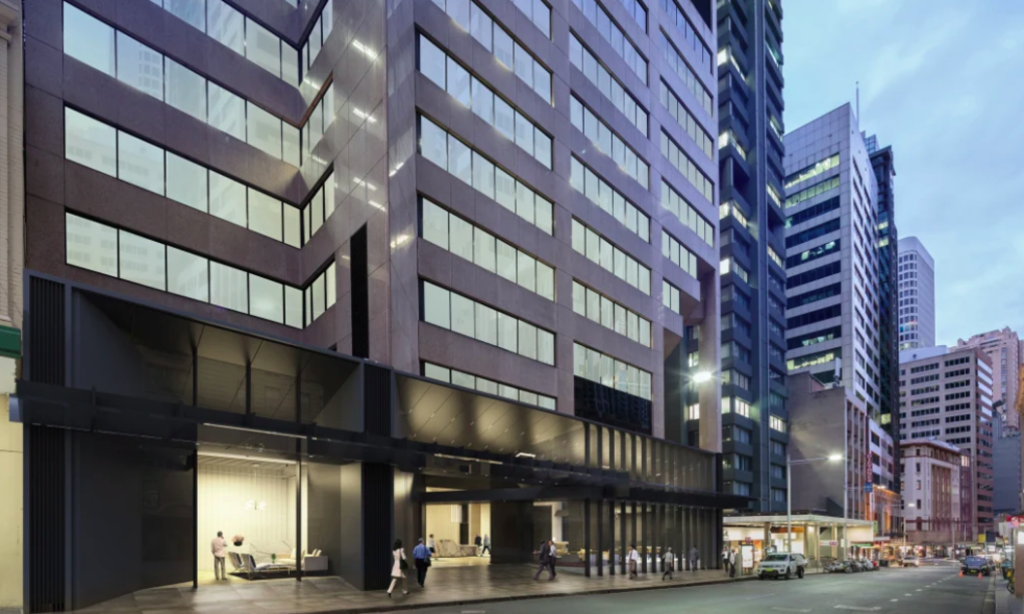
WeWork waves rock local co-working space amid questions over its future
The biggest local landlord of WeWork insists there is still room for growth in the flexible office market in Australia, as a top industry analyst said he is concerned the troubled US co-working giant may collapse in a matter of months.
Kevin George, the executive general manager for office properties at Dexus, which leases two properties in Sydney to WeWork used a blog post to declare that, despite the recent boom in co-working, Australia is still lagging other comparable markets.
“In Australia, flexible space providers account for only 2 to 3 per cent of CBD office space and, by all accounts, most operators are substantially full” he said.
“But the Australian experience has not matched the growth in co-working overseas, with the sector representing 6.3 per cent of London’s central office market and circa 4 per cent in the Asia Pacific, excluding Australia.”
But Mr George conceded that even though the industry has a strong growth trajectory, risks remain. These include a mismatch between the length of the leases it is locked into and the flexible contracts it grants its customers.
“The challenge for co-working operators, that effectively buy long and sell short, is managing their risk and cash flow in a downturn, with many of the new breed of operators never experiencing a fully-fledged economic slowdown”.
Mr George said previous cycles have exposed flexible space providers to be just as vulnerable as landlords when tenant demand evaporates.
Ted Bauman, a New York-based a senior research analyst and economist at Banyan Hill Publishing, said he was concerned that WeWork could collapse in coming quarters despite weighing competing bailout offers from major shareholder Softbank and investment bank JPMorgan.
“Despite the company’s dire situation or rather, precisely because of it that’s given WeWork some leverage to play the two off against each other,” Mr Bauman said in an email to The Sydney Morning Herald and The Age.
“Competing to bail out a company on the verge of bankruptcy with no path to profitability seems insane. I’d like to be able to say that everybody wins in this scenario, but WeWork is probably going to collapse entirely within the next couple of quarters.”
In Australia, WeWork has over 10,000 members across fifteen locations in Sydney, Melbourne, Brisbane and Perth.
In July, it secured 11,000 square metres of space at 320 Pitt Street in a 12-year leasing deal negotiated by JLL and Knight Frank. The tenancy marks WeWork’s first lease with building owner ARA Australia.
But Mr George said the question of who carries the risk among the landlord/manager, the tenant and the co-working operator still hangs over the sector.
“The challenge for co-working operators, that effectively buy long and sell short, is managing their risk and cash flow in a downturn, with many of the new breed of operators never experiencing a fully-fledged economic slowdown. Some say that the demand for flexible space will rise as an economy falters.”
Mr George said that may well happen, but previous cycles have exposed flexible space providers to be just as vulnerable as landlords when tenant demand evaporates.
WeWork has been the highest profile name in the co-working sector but after a blitz of deals is now facing significant hurdles.
Its proposed public float was pulled and founder Adam Neumann stepped down as chief executive.
Sami Schiavi, flexible workplace specialist at Colliers International, says the co-working segment of the commercial office industry can no longer be ignored.
“It is here to stay and growing. Tenants want it, landlords need it and flex space providers are taking up space – a lot of it – to position themselves well for future demand,” Ms Schiavi said.











